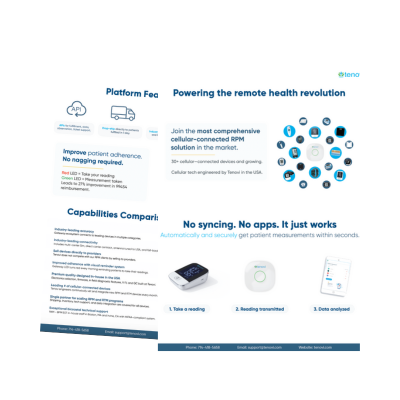Digital health technologies offer patients opportunities to monitor and manage their health while healthcare providers can deliver more personalized and efficient care. From remote patient monitoring (RPM) devices to the integration of artificial intelligence (AI) and mobile health applications, the landscape of digital health is continually evolving. This article explores telemedicine research in digital health and reviews digital health technology examples. Insights include potential benefits, challenges, and implications for the future of healthcare.
Digital Health Technologies in Diabetes Care
The rise in diabetes cases has led to escalated costs and overburdened healthcare systems. However, the cost increase is largely due to preventable complications rather than the disease itself. Digital health technologies are shown to be a cost-effective way to support preventive health care while reducing complications and associated costs. These tools give patients access to education about their disease, lifestyle modifications, and the ability to track vital sign measurements from home.
One recent study is a digital health example of how integrating telemedicine, smartphones, and remote patient monitoring has advanced diabetes care. The researchers emphasize technological interventions alongside traditional medications can help to manage diabetes effectively. The research also noted that mobile applications with educational and motivational resources support preventive healthcare measures.
Advocating for Digital Health Technologies
Digital health technologies, particularly remote patient monitoring, have emerged as indispensable tools in modern healthcare. Researchers in one study suggest integrating RPM as a standard of care, due to its clinical value in early detection and efficient resource utilization. Furthermore, continuous RPM and evolving toward alert-based RPM models can maximize the clinical benefits of RPM. The authors suggest future strategies should include optimized staffing, appropriate reimbursement models, and universal data processing to develop standard operating protocols and workflows.
Remote Patient Monitoring of Stomatitis for Patients
Stomatitis is a painful condition that occurs during cancer treatments. One digital health example comes from an upcoming study that plans to use digital health technologies and remote patient monitoring to improve stomatitis management. The study team developed a digital solution with a patient interface for health data acquisition and personalized education. The team has also developed a clinician interactive data dashboard for monitoring patients’ records of stomatitis-related symptoms.
This solution for remote monitoring of stomatitis risk in cancer patients is currently being used in four studies and is planned for three more. It is expected to reach about 7,000 patients across 49 sites in 16 countries and has already received positive patient feedback. Plans for further analysis and feedback are underway to assess the solution’s effectiveness in mitigating stomatitis and improving patient outcomes.
AI in Healthcare
Many researchers believe that Artificial intelligence (AI) has the potential to revolutionize disease diagnosis. That potential is evidenced in a study of an AI system that uses a patient’s heart signal to diagnose COPD. By leveraging deep transfer learning, the AI system offers an alternative to traditional diagnostic methods, potentially enabling early disease detection and intervention. Traditional COPD diagnosis methods require spirometer tests. By using digital health technologies, this system uses a smart device to classify patients’ ECG signal equivalents. The research shows that this approach is practical, easily applicable, and could be a diagnostic aid for COPD specialists. The system could also aid in the early diagnosis of future diseases for which little data is currently available.
Looking Ahead: Digital Health Technologies
As digital health continues to evolve, staying abreast of the latest developments is paramount for healthcare providers, patients, and stakeholders invested in the intersection of digital health technologies and healthcare. With ongoing advancements in telemedicine, RPM, IoT, and AI, the future of healthcare holds countless opportunities for innovation and transformation. Embracing these digital health technologies enhances healthcare delivery and fosters a patient-centric approach, ultimately improving health outcomes and quality of life for individuals worldwide.
For healthcare providers seeking to stay ahead in the ever-changing digital health landscape, subscribe to Tenovi’s Weekly Research Round-Up. Access comprehensive insights, billing solutions, device management tools, and API integration dashboards.


